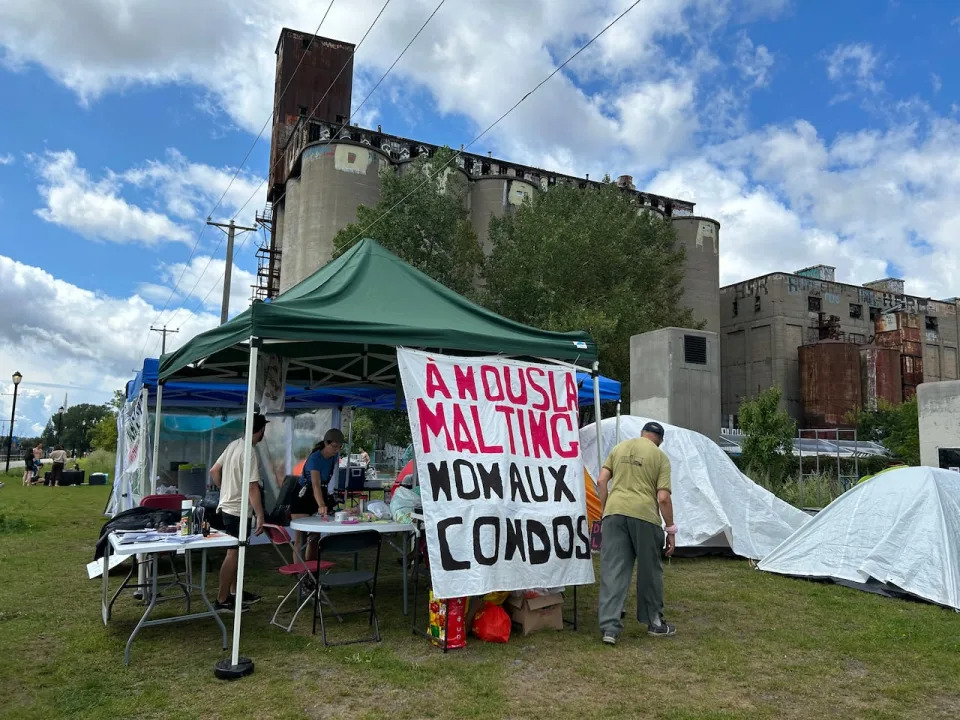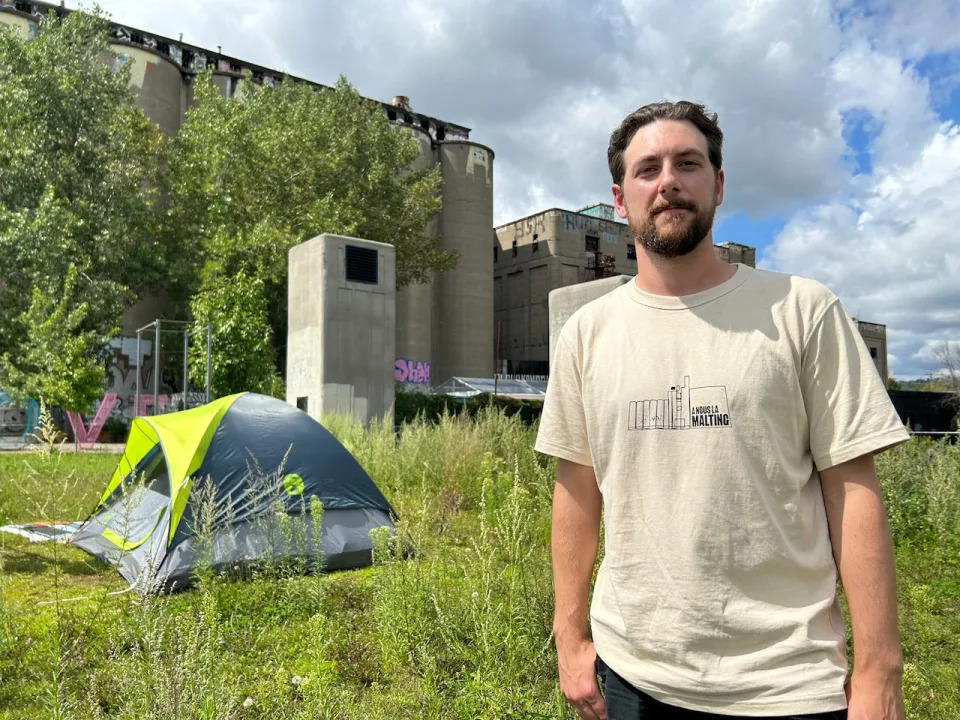CBC
Sun, August 27, 2023 at 6:38 a.m. MDT·3 min read

The future of the Canada Malting site, once used to malt barley, has been a topic of debate for years. Community members of Saint-Henri began mobilizing to turn the site into social housing a decade ago. (Rowan Kennedy/CBC - image credit)
David Grant-Poitras has spent two nights camped outside the crumbling buildings of the old Canada Malting Company in Saint-Henri, despite having a warm bed elsewhere in the city of Montreal.
He's one of a handful of members from the community collective À nous la Malting trying to block a condo development at the site and pitching their own proposal to residents passing by the Lachine Canal.
For the organization, anything short of a 100 per cent social-housing unit complex is simply unacceptable and they're camping out until Sunday morning to make that point.
"If there's more condominiums on this site, it's going to gentrify more the place," said Grant-Poitras who is also a researcher at the Université du Quebec à Montréal (UQAM) social sciences department.

David Grant-Poitras is a member of the collective À nous la Malting. He has spent the last few nights camping outside the site and raising awareness around the gentrification of the Saint-Henri neighbourhood. (Rowan Kennedy/CBC)
Renwick Development is hoping to acquire the former malting factory and begin construction within a year. The company's president Noam Schnitzer says they're looking to build around 100 social housing units which would represent between 25 and 27 per cent of all units.
"From day one, the social housing component was an extremely important element and for us, [there] was no question as to whether or not this would be part of the project," Schnitzer told CBC News.
Grant-Poitras says Schnitzer's commitment isn't enough given the magnitude of the housing crisis in Montreal.
À nous la Malting's vision includes 200 social housing units, a daycare, a community kitchen and a greenhouse among other things. In March, 2020 the collective presented its project proposal — which was produced with the help of a $10,000 grant from the Sud-Ouest borough — to the city.
"After that we felt like the city's solidarity wavered a bit," said Grant-Poitras. "I don't know if it thought it was too ambitious of a project."
He says there's still time for the city to step in. However, that window is narrowing.

Protesters gathered at the old Canada Malting site, demanding that no more condos be built along the Lachine Canal. (Rowan Kennedy/CBC)
In 2015, Renwick Development signed a $5.5-million purchase agreement with the current owner of the old Canada Malting Company site, Quonta Holdings. According to court documents, negotiations fell apart and delayed a final sale to Schnitzer's company. Last year, a Quebec judge upheld the purchase agreement — a decision that was then appealed by Quonta Holdings.
According to Schnitzer, they're due to appear in court again in November.
"It's unfortunate," he said. "In the end here it's those that are in need — that need this development for many reasons obviously social housing being a main part of it — it's those people that are sitting waiting for this."
He says the private sector is necessary for major projects like this that require expertise, especially where historical buildings are concerned, and a lot of funding.
The old Malting was erected in 1905 and quickly became one of the most important malteries in North America. It was eventually abandoned in the 1980s and has sat empty ever since, making the cost of a development project there "extreme," according to Schnitzer.
Grant-Poitras says he's worried at the thought of one of Montreal's last historic industrial sites falling into the hands of condominium developers.
"If we miss this opportunity to go ahead with an ambitious project for the community that responds to its needs, then it might be too late."
Schnitzer says that if the acquisition of the site is made possible after November, the Sud-Ouest borough would still have to authorize the project to proceed.
The city of Montreal did not immediately respond to requests for comments.
No comments:
Post a Comment